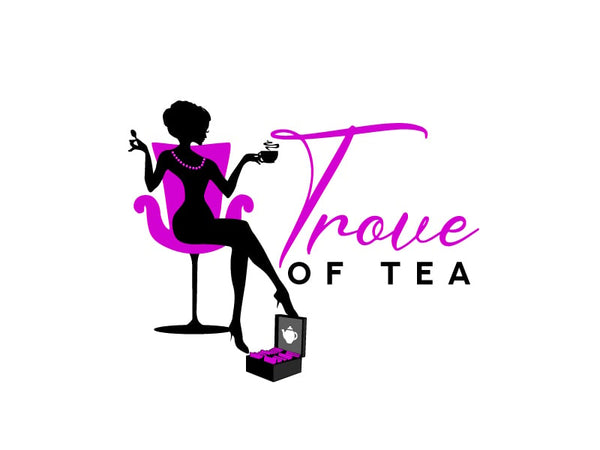
A Moment with Moses: Enjoying Tea and the Lessons of Exodus
Trove of Tea ShopShare
Moses, a towering figure in biblical history, led the Israelites out of slavery in Egypt and guided them through the wilderness to the Promised Land. His life is a testament to perseverance, faith, and divine guidance. As we sit down with a cup of tea and delve into the lessons from Exodus, we invite ourselves into a reflective space where Moses' journey can inspire our own. The act of enjoying tea becomes more than a simple ritual; it transforms into a profound moment of contemplation, aligning our thoughts with the timeless wisdom found in Exodus.
The Call of Leadership: Embracing God’s Purpose
Moses’ journey began with a divine call that came in the most extraordinary of ways—a burning bush that was not consumed by fire. This encounter, detailed in Exodus 3, is pivotal not only for its miraculous nature but for the profound implications it had for Moses’ life and mission.
"And the angel of the Lord appeared unto him in a flame of fire out of the midst of a bush: and he looked, and, behold, the bush burned with fire, and the bush was not consumed." (Exodus 3:2)
This miraculous event signified God’s unique purpose for Moses. It was not just a display of divine power but a clear indication that Moses was chosen for a significant role in God’s plan. As we sip our tea and reflect on this moment, we are reminded of the importance of recognizing and embracing the callings in our own lives.
Moses was initially hesitant, citing his lack of eloquence and confidence. Yet, God’s reassurance was unwavering: “Certainly I will be with thee.” (Exodus 3:12). This assurance is a powerful reminder that when we are called to a purpose, we are not alone. The journey may be fraught with challenges, but God’s presence provides the strength and guidance needed to fulfill our roles. As you ponder Moses’ call, reflect on the areas in your life where you feel God’s hand guiding you. Embrace your purpose with the assurance that divine support is always with you.
The Plagues and the Power of Faith
The story of the ten plagues that befell Egypt is a dramatic display of God’s power and judgment. Each plague was a direct challenge to the Egyptian gods and a demonstration of God’s supremacy. This series of events was not merely about punishing Pharaoh for his stubbornness but about revealing God’s power and establishing His authority over all creation.
"And the Lord said unto Moses, Go in unto Pharaoh: for I have hardened his heart, and the heart of his servants, that I might shew these my signs before him:" (Exodus 10:1)
The plagues are a stark reminder of the consequences of defiance against divine will and the importance of acknowledging God’s authority. As you sip your tea, consider the lessons that the plagues impart. They reveal that God’s plan will come to fruition regardless of human resistance. Reflect on the times when you have faced resistance or challenges in your life. How did you respond to obstacles? The story of the plagues encourages us to remain steadfast in faith, trusting that God’s will prevails in the end.
Crossing the Red Sea: The Miracle of Deliverance
One of the most iconic moments in Exodus is the crossing of the Red Sea. The Israelites, trapped between Pharaoh’s pursuing army and the seemingly insurmountable sea, faced a critical moment of desperation. It was in this moment of peril that God performed one of the most extraordinary miracles recorded in Scripture.
"But Moses said unto the people, Fear ye not, stand still, and see the salvation of the Lord, which he will shew to you to day: for the Egyptians whom ye have seen to day, ye shall see them again no more for ever." (Exodus 14:13)
God instructed Moses to stretch out his hand over the sea, and the waters parted, allowing the Israelites to cross on dry land. This miracle is a profound testament to God’s power and the importance of faith in the face of seemingly insurmountable obstacles.
As you enjoy your tea, meditate on the significance of the Red Sea crossing in your own life. Reflect on the “Red Sea” moments you have encountered—those times when you felt trapped between a rock and a hard place. How did you experience God’s deliverance? The crossing of the Red Sea teaches us that even in our most desperate moments, God is able to make a way where there seems to be no way. Let this reflection strengthen your faith and remind you of God’s capability to deliver you from your trials.
The Covenant and the Ten Commandments: A Foundation for Righteous Living
After the Israelites' dramatic escape from Egypt, Moses ascended Mount Sinai to receive the Ten Commandments from God. These commandments were not merely a set of rules but a covenant between God and His people, outlining the foundation for righteous living and establishing a moral framework for the community.
"And the Lord said unto Moses, Come up to me into the mount, and be there: and I will give thee tables of stone, and a law, and commandments which I have written; that thou mayest teach them." (Exodus 24:12)
The Ten Commandments are timeless principles that continue to guide ethical behavior and spiritual integrity. They encapsulate the essence of what it means to live in relationship with God and with one another.
As you sip your tea and reflect on these commandments, consider their relevance in your life. The commandments cover fundamental aspects of human interaction and spiritual devotion. Reflect on how these principles guide your actions and decisions. Are there areas in your life where you need to realign with these commandments? The Ten Commandments serve as a constant reminder of the moral and spiritual standards that God expects from us, urging us to live a life of integrity and faithfulness.
The Wilderness Journey: Lessons in Patience and Dependence
The Israelites’ journey through the wilderness was marked by trials and challenges. Despite witnessing numerous miracles, they often struggled with doubt and discontent. Their time in the wilderness was not merely a physical journey but a spiritual one, designed to cultivate patience, faith, and dependence on God.
"And he humbled thee, and suffered thee to hunger, and fed thee with manna, which thou knewest not, neither did thy fathers know; that he might make thee know that man doth not live by bread only, but by every word that proceedeth out of the mouth of the Lord doth man live." (Deuteronomy 8:3)
The provision of manna and water in the wilderness was a constant reminder of God’s care and faithfulness. However, it was also a period of testing and growth for the Israelites.
As you contemplate the wilderness experience, think about your own periods of trial and waiting. The wilderness can be a metaphor for the challenging seasons in our lives where we feel uncertain and tested. How do you respond to these seasons? The lessons from the wilderness are about learning to trust in God’s provision and timing. Reflect on the ways God has provided for you in times of need and how these experiences have shaped your faith.
The Golden Calf: The Perils of Idolatry and Rebellion
In the absence of Moses, the Israelites’ faith wavered, leading them to construct a golden calf and engage in idolatry. This incident was a grave breach of their covenant with God and a stark reminder of the dangers of turning away from divine commands.
"And when the people saw that Moses delayed to come down out of the mount, the people gathered themselves together unto Aaron, and said unto him, Up, make us gods, which shall go before us; for as for this Moses, the man that brought us up out of the land of Egypt, we wot not what is become of him." (Exodus 32:1)
The creation of the golden calf was not merely an act of rebellion but a profound misunderstanding of God’s nature and the covenant they had entered into. It serves as a warning against the temptation to replace God with substitutes that cannot fulfill His role in our lives.
As you reflect on this incident, consider the “golden calves” in your own life—those things that might divert your focus from God or lead you away from His path. Are there areas where you have allowed something other than God to take precedence? The story of the golden calf calls us to examine our own lives and ensure that our devotion remains steadfast and genuine.
Conclusion: Embracing the Lessons of Exodus
In conclusion, Moses’ journey and the events of Exodus provide a wealth of lessons that extend beyond historical narratives. They offer profound insights into faith, leadership, perseverance, and the nature of our relationship with God. As you enjoy your tea and reflect on these lessons, let them serve as a guide for your own spiritual journey.
Moses’ story reminds us that we are called to embrace our divine purpose with courage and faith, prepare diligently for the challenges ahead, and trust in God’s deliverance even when faced with seemingly insurmountable obstacles. The Ten Commandments call us to uphold a moral and spiritual foundation, while the wilderness experience teaches us to rely on God’s provision and timing.
In our moments of reflection, may we also remain vigilant against the temptations and pitfalls that can lead us astray, such as idolatry and disobedience. Let Moses’ example inspire us to live with integrity, purpose, and unwavering faith.
As you sit with your cup of tea, let it be a moment of introspection and renewal. Embrace the lessons of Exodus, allowing them to shape your journey and strengthen your faith. May your moments of reflection be filled with wisdom, peace, and a deeper understanding of God’s guidance in your life.









